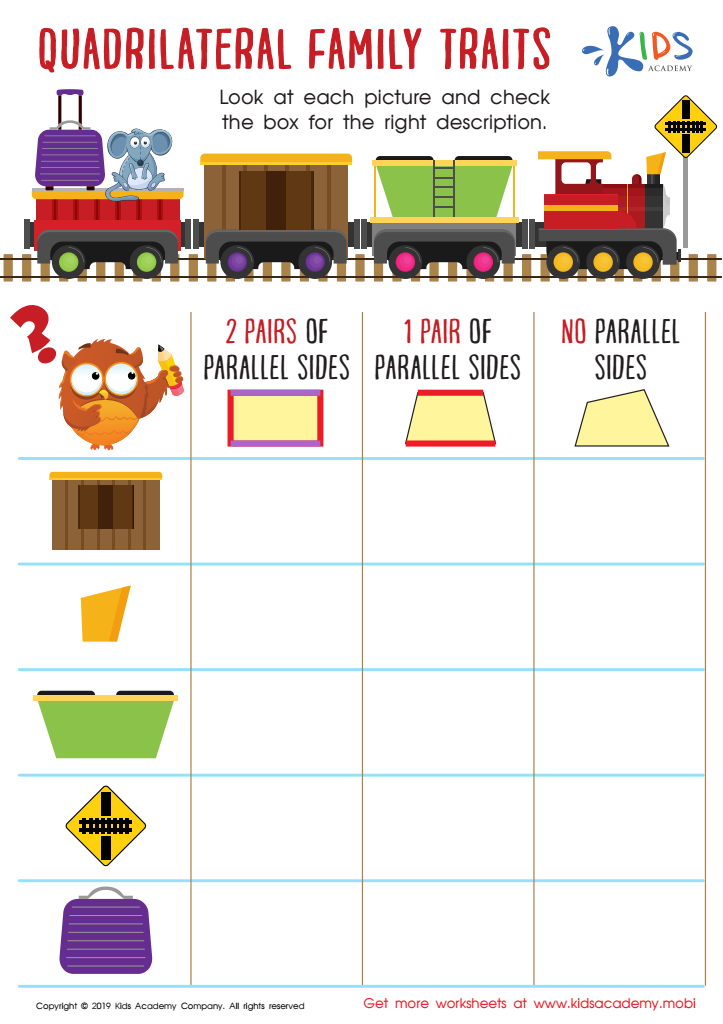Enhance logical thinking Math Worksheets for Ages 4-9
4 filtered results
-
From - To
Unlock your child's potential with our Enhance Logical Thinking Math Worksheets for ages 4-9! Carefully designed to develop critical thinking skills and mathematical fluency, these worksheets engage young minds through fun, educational activities. Each worksheet targets key skills including pattern recognition, sequencing, problem-solving, and reasoning, tailored specifically for early learners. With vivid illustrations and interactive exercises, these math worksheets foster a love for learning while solidifying foundational math concepts. Trust Kids Academy to provide the resources your child needs for academic success. Explore our collection today and watch their confidence soar as they master logical thinking in math!


Quadrilateral Family Traits Worksheet
Enhancing logical thinking through math for children ages 4-9 is crucial because it forms the foundation for critical problem-solving skills and helps in cognitive development. At this stage, children's brains are highly adaptable and capable of rapid learning. Fostering logical thinking through math teaches them how to approach problems systematically, recognize patterns, and make reasoned decisions, which are skills that will benefit them in all areas of life.
Mathematical concepts like sorting, sequencing, and identifying relationships between numbers and objects are practical applications of logic. They help children develop important reasoning skills that extend beyond math lessons, aiding in the understanding of cause and effect, enhancing their ability to think abstractly, and boosting their overall academic performance.
Additionally, a solid grounding in early math and logical thinking helps build confidence. When children see progress and accomplish tasks that require logical deduction, their self-esteem often improves, which can foster a positive attitude towards learning in general.
For parents and teachers, focusing on logical thinking in math is not just about teaching numbers — it's about equipping young minds with the tools they need to thrive in more complex problem-solving scenarios as they advance in their education and daily life. Therefore, emphasizing logical thinking in math during these formative years is an investment in a child's future success.

 Assign to My Students
Assign to My Students





.jpg)











